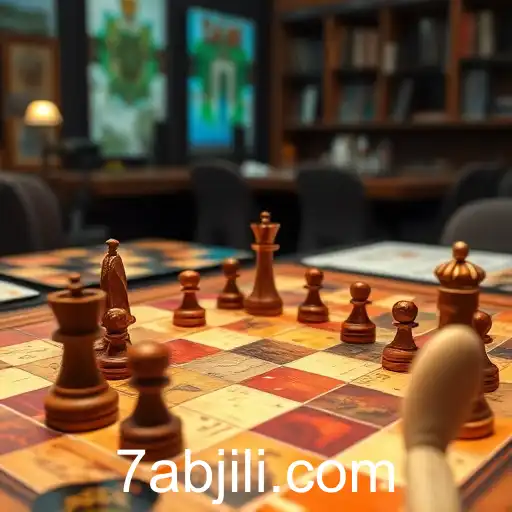Board games have been a staple of human culture for centuries, offering not only entertainment but also an opportunity to hone strategic thinking and social interaction skills. From ancient classics like Chess and Go to modern favorites such as Catan and Carcassonne, board games continue to captivate players of all ages across the globe. This enduring popularity can be attributed to the diversity and evolution of games available, appealing to various interests and skill levels.
The history of board games dates back to the earliest civilizations. Archaeologists have uncovered games that were played in ancient Egypt, China, and Mesopotamia, reflecting a universal human desire for play and competition. Today, the global board game market is thriving, with thousands of different games on offer to enthusiasts. Whether you prefer strategic games, cooperative play, or family-friendly fun, there's something for everyone.
A crucial aspect of the charm of board games is their ability to bring people together. In an age where digital entertainment often isolates, board games encourage face-to-face interaction, fostering bonds and camaraderie among players. They are an excellent tool for teaching patience, strategic planning, and decision-making as players learn to anticipate their opponents' moves and adapt their strategies accordingly.
Moreover, the rise of board game cafes and conventions has further cemented the popularity of this pastime. These venues provide enthusiasts with the chance to explore new games, compete in tournaments, and meet fellow hobbyists. Additionally, the advent of crowd-funded platforms offers budding game designers the opportunity to bring their ideas to life, expanding the range of games available on the market.
Educational institutions have also recognized the value of board games as a teaching tool. Many schools incorporate them into the curriculum to develop students' cognitive abilities and social skills, helping children improve their focus, memory, and problem-solving capabilities in an engaging manner.
In conclusion, board games are much more than just a means of entertainment; they are a vibrant part of human culture that continues to evolve and adapt to modern living. Their ability to unite people, stimulate the mind, and provide hours of enjoyment make them an invaluable pastime. Whether you're an experienced player or new to the world of board games, there's an adventure awaiting you at the next roll of the dice or draw of a card.

Discover the enthralling universe of board games, where strategy meets entertainment. This article delves into the historical background, the diversity of games available in today's market, and the reasons behind their enduring popularity.




